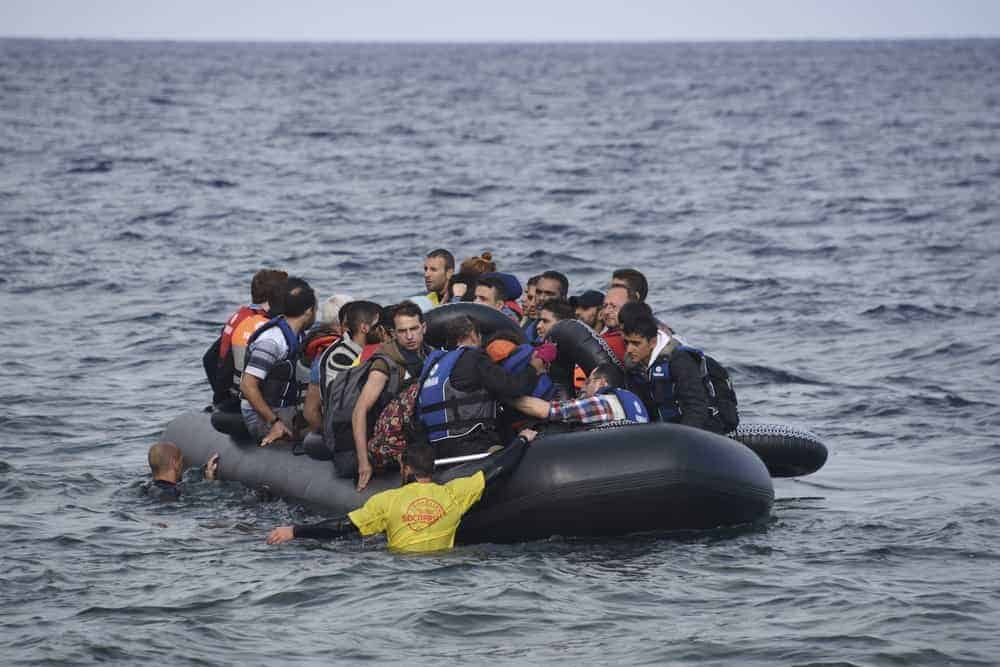With the approach of summer, entry of asylum seekers from various countries to Turkey and then Greece will increase. The land and sea borders of the two countries are the main passage for refugees from the Middle East, Asia and Africa who, following the civil war and economic crisis, are trying to reach Greece and then other European countries. Most asylum seekers who intend to enter the borders of the European Union, after crossing the borders of several countries and enduring many hardships, are forced to reach the borders of Greece. In recent weeks, the region has witnessed painful incidents that have resulted in the deaths of a number of asylum seekers. According to the United Nations High Commissioner for Refugees (UNHCR), more than 2,500 people died in the Mediterranean Sea from January to November 2021 while trying to enter the European Union.
In recent years, Greece has stepped up its surveillance tools to prevent asylum seekers from entering with cameras and radars, and has installed a 5-meter-high steel barrier over 40 kilometers. International non-governmental organizations accuse Greece of creating a neutral military zone in which no one can help the few migrants who manage to cross it. International human rights organizations have repeatedly criticized the conservative Greek government over the plight of asylum seekers and their uncertain fate. According to statistics from refugee protection organizations, thousands of Afghan refugees entering Greece via Turkey are currently experiencing difficult days in various parts of the country.
The anti-immigration policies of Turkey and Greece have been repeatedly criticized by international organizations. In its report on the situation of migrants, Human Rights Watch emphasizes that Greek police have detained asylum seekers at the Greek-Turkish land border and, in many cases, stripped them of their clothes, stolen their money, telephones and other assets, and returned them to Turkey in the worst possible conditions.
Refugees returned from Greece and Turkey are wandering in the border areas. Greek police have detained asylum seekers on the Greek-Turkish land border on the Evros River, forced them into small boats, taken them across the Evros River into cold water and forced them to head for Turkey. According to Human Rights Watch, while Greece welcomes Ukrainians as “real refugees”, it is driving back Afghans who are fleeing similar violence.
Evidence shows that pressure on Afghan refugees in Greece, Turkey and Eastern Europe has increased since the Ukraine crisis and the influx of Ukrainian refugees. Turkey, which has been repeatedly criticized by human rights groups, claims that Greece treats Afghan refugees inhumanely and that refugees are expelled by its border units.
Greece and Turkey have long had basic differences over asylum seekers seeking asylum in the EU on the Greek-Turkish border, despite a 2016 EU-Turkey agreement to curb immigration. Under an agreement between Turkey and the European Union, Ankara will restrict the flow of migrants and asylum seekers to the EU in exchange for 6 billion euro in support for asylum-related services and the promise of visa-free travel to the EU.
The recent resignation of Fabrice Leggeri, head of the European Border and Coast Guard Agency (Frontex), who has been Frontex’s managing director since 2015, But in recent years he has been accused of neglecting human rights abuses and mistreating asylum seekers at EU borders, and the fact that Frontex patrol boats have been accused of trying to “repel and expel asylum seekers” from EU borders showed that Frontex officials also face charges of harassment and abuse. Frontex, which is responsible for protecting the lives of asylum seekers, has not only failed in its duties, but has also played a role in harassing asylum seekers and preventing asylum seekers from reaching Europe. Not only it has not done its job, but it has taken steps to repel the asylum seekers which has caused their deaths.
One of the countries accused of Frontex not taking any action against their inhumane and violent treatment of asylum seekers is Greece. Even earlier this year, to the astonishment of Europeans, it awarded a prize to Leggeri, the head of the European Border and Coast Guard Agency! Which faced criticism. The move by Athens comes amid serious allegations against him for repelling the boats carrying migrants as of October 2020. Greece’s Leftist Coalition (Conservative Party) insists that resignation of French head of Frontex has humiliated Greece, and the Conservative government is obliged to provide immediate explanations about the allegations, which violate the rights of the sea and respect for human life and dignity.
In 2021, the European Parliament issued a report alleging that Frontex had failed to meet its obligations to asylum seekers in areas including the Aegean Sea and between Turkey and Greece. While human rights organizations have previously sounded the alarm about the treatment of asylum seekers, Johansson, the EU commissioner, had stressed the need to strengthen monitoring the rights of individuals and asylum seekers by Frontex. EU countries have given more money and authority to Frontex since more than one million Syrian refugees arrived in Europe in 2015, which in turn has fueled far-right sentiments in the EU. The European Union has since restricted asylum and migrants rights, strengthened its borders and entered into agreements with countries, including Turkey, to keep asylum seekers on its territory.
Evidence shows that as long as the tense relations between Greece and Turkey continue in the Mediterranean Sea and they accuse each other of adopting the wrong policies and tool making of the migrants, there will be no clear prospect for improving the situation of illegal immigrants and solving their problems in the Mediterranean.










0 Comments